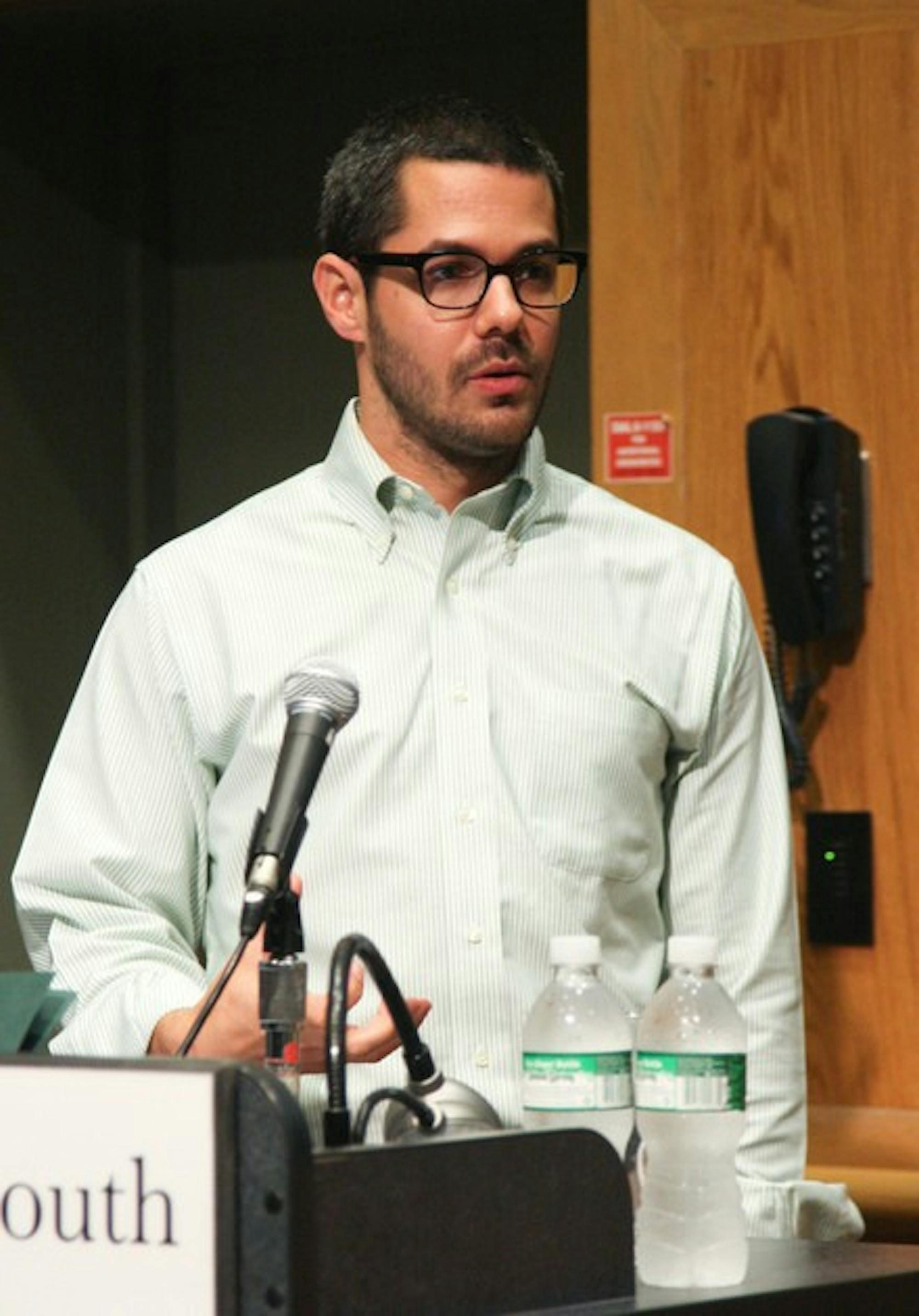"This was very in-your-face," Yago said. "This was, 'You're going to Africa and sh-t is hitting the fan.'"
Yago spoke on how to create this type of "pro-social programming" at an open forum in the Rockefeller Center Thursday. Throughout the talk, Yago, who worked as a news correspondent for MTV, CBS News and CNN from 2000 to 2007, referenced his experiences making documentaries.
Yago used his film projects to target young people and foster a discussion about HIV/AIDS, he said.
"Crafting and producing programming about HIV and AIDS for a young audience was all very practical, very much using marketplace tactics that MTV would employ in designing its regular programming," Yago said in an interview.
Because the media is a push-pull system, creating effective television programming involves paying attention to what viewers are tuning into as well as what they are tuning out, Yago said.
Advertisers learn what the top issues are by taking into account ethnographical data, he said. This data is based on surveys that ask viewers what issues are most important to them, he added.
Initially, MTV had a relatively easy time creating well-watched programming about HIV/AIDS, Yago explained. In the late 1980s and early 1990s, HIV/AIDS was beginning to be a societal concern, which coincided with the inception of MTV.
"MTV and HIV grew up together as social phenomenon," he said. "HIV and AIDS was coming of age as a health crisis and so was MTV as targeting the portion of the population that was most at risk."
Sexually transmitted diseases and sexual health were routinely among the top three issues important to young people during this time, and MTV's programming contributed to increased testing rates and condom use, he said.
Because no trend or idea stays in place for long, beginning around 2000, creating well-watched programming about the epidemic became much more challenging, according to Yago.
"By the turn of the millennium, which is when I became part of the process of crafting the programs, the issue of HIV/AIDS posed an entirely new set of problems," Yago said. "As the disease emerged and people began to gain opinions about it, the audience was largely tuning out or growing deaf to it."
Though rates of infection were continuing to rise among the country's young women and African American and Latino populations, people began to stop talking about the epidemic, according MTV's internal polling data. By 2005, the issue ranked at number five on a list of Americans' major concerns. Currently, six out of every 10 people think they will never find themselves exposed to HIV/AIDS in their lifetime.
In the early 2000s, MTV began conducting short 30-second public service announcements aimed at young women in hopes that the advertisements would empower them to discuss HIV/AIDS with their partners, Yago said.
"Where I became most involved was trying to figure out how to create that concept of conversation and shape it into content," Yago said.
As he and his colleagues began to notice a negative response to MTV's discussion of HIV/AIDS, they attempted to transform it into a positive issue. They filmed commercials that showed two partners using a condom while having sex to change the tone of the discussion about safe sex and getting tested, Yago said.
HIV/AIDS received a "domestic branding bump," he said, as it became more of an international crisis.
"The whole issue of AIDS in the developing world became part of the national conscience," Yago said. "The fact that this came from the ground up allowed us to have a touchstone with which to reinvigorate the conversation about HIV/AIDS again as a phenomenon."
This created an impetus for documentaries following people like Bono, Chris Tucker and Bill Clinton as they traveled through Africa and witnessed the impact of HIV/AIDS in developing nations, Yago said.
The documentaries -- which featured famous people traveling to clinics, testing facilities and hospitals around the continent -- were a huge ratings success, he said. MTV used them to feed its own messaging about testing and the health concerns among young women, African Americans and Latinos to young people in the United States, he added.
Students at the lecture said they were impressed by Yago's insights.
"He presented the material in such a way that his perception of media as a social medium could be applied to many different topics, which I thought was one of the strongest points in his speech," Claire Wagner '10 said.
Yago said he always felt his social programming should be viewed as a starting block to spark interest in a topic.
"My job, if I did it right, was to get someone to ask more questions -- to go onto the internet, to read a book, to talk to somebody about an issue that they just did not know about," Yago said in an interview with The Dartmouth. "It is the textbook definition of raising awareness."




